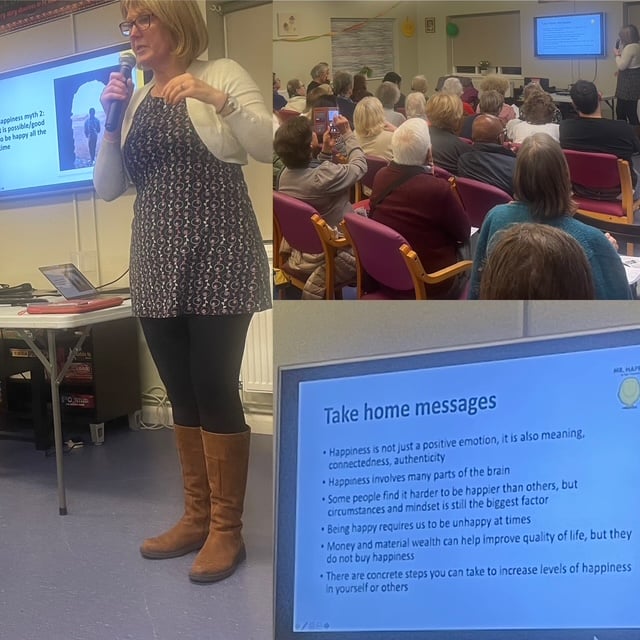Six science-backed ways to get happier
Published on 27 November 2025 01:39 PM

In a recent brilliant talk for us, neuroscientist Professor Catherine Loveday spilled the beans on the science of happiness...
Scandinavian countries consistently top global happiness rankings - and nations with greater equality tend to be happier overall. “From an individual perspective, although wealth is linked to increased happiness, after a certain income level (around $60,000 a year in the US) the benefit plateaus,” said Catherine.
She added that happiness shifts across our lifetime, typically dipping in midlife before rising again as we get older and become more likely to recall positive experiences.
Genetics counts - around 30-50 per cent of people are just naturally happier than others. “Some people really do see the world as glass half full or half empty,” Catherine explained. “And after good or bad events, most people tend to return to their natural happiness level.”
But the good news is this: even if happiness doesn’t always come naturally, there’s a lot we can do to boost it. The more we work on our circumstances and habits, the less power our genetics have. And remember - no one is happy all the time. Life’s ups and downs, and the challenges we overcome, are what give meaning to our lives.Here are just a few of Catherine’s science-backed tips to improve happiness:
1. Get walking.
Walking benefits mental as well as physical health. Try an “awe walk” - take a photo of something that fills you with wonder. It helps you become more aware and appreciative of the world around you. Walking with someone else brings the added benefits of chatting, connecting and sharing.
2. Write it down.
Note three good things that happened that day, or everything you achieved. Writing things down helps you notice and absorb the positive moments.
3. Connect with others.
Acts of kindness make a real difference - but volunteering or contributing to a bigger cause has the biggest impact on happiness. It strengthens purpose, meaning and accomplishment. Small gestures count too: a smile, a thank-you, or simply being part of a group boosts connection and wellbeing.
4. Find your flow.
Lose yourself in activities you love - playing an instrument, crafting, reading or listening to music. Flow states help us switch off from stress and increase fulfilment.
5. Build a bank of happy memories.
By rehearsing positive memories, you train your brain to think more positively. Write them down, keep a diary, or share stories with others. Techniques like the memory palace - linking happy memories to landmarks on a walk, for instance - can be powerful, and have had a positive impact on people with depression.
6. Try a memory experiment.
Visualise a place from your past that makes you happy. Picture it in detail and imagine walking around it. Or think of a song that lifts your mood - what memory does it bring back?
We are lucky that Professor Catherine Loveday puts on regular community talks for Age UK Barnet. Keep an eye out on our website, newsletter or social media for her next talks.
